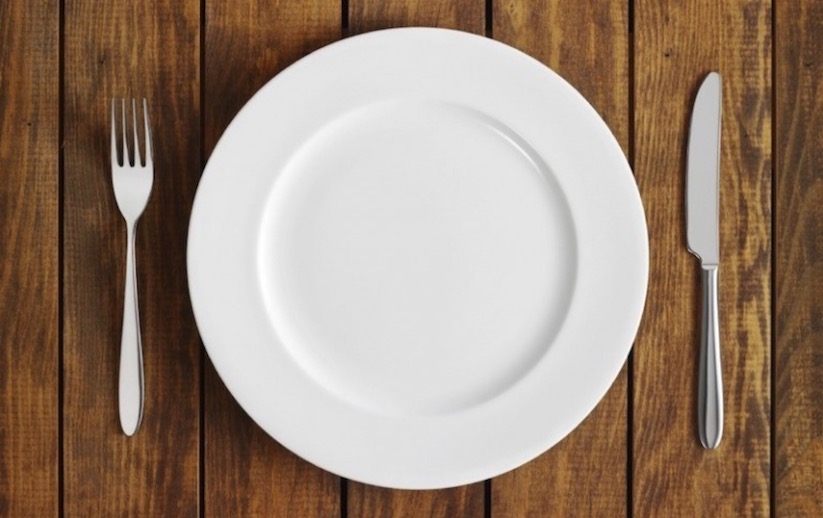It is well known that regular fasting can help you lose weight and improve your health. But, for many people the sheer act of abstaining from all foods and beverages can be a difficult, if not impossible, process. Those able to fully abstain are at increased risk of entering a starvation mode, which is generally accompanied by extreme hunger, cravings, and, oftentimes, weight regain. Luckily, there are plenty of alternatives to complete abstention.
Diurnal fasting is one of them.
What is Diurnal Fasting?
Diurnal fasting is a form of intermittent fasting that essentially involves abstaining from foods and beverages (sometimes including water) during daylight hours. The fasting period typically includes the hours between sunrise and sunset (about 10-12 hours) in addition to sleeping hours (about 6-8). While food and beverage consumption is generally unlimited during non-fasting hours, it’s best to incorporate a well-balanced diet with good nutrition.
Related Article: Intermittent Fasting: How I Control My Weight By Eating One Meal a Day
What Are the Health Benefits of Diurnal Fasting?
Diurnal fasting comes with a host of beneficial health effects. Such effects have been widely studied among those who fast this way during the month of Ramadan. In relation to weight management, diurnal fasting is associated with dramatic reductions in body weight, body fat percentage, and waist circumference, which is indicative of reductions in visceral (“belly”) fat. It’s also been shown to improve both the length and quality of sleep. This is especially beneficial for overweight individuals suffering from sleep apnea.
In addition to weight-related effects, diurnal fasting leads to notable changes in cholesterol. More specifically, diurnal fasting boosts HDL (“good”) cholesterol and lowers LDL (“bad”) cholesterol levels in the blood. Buildup of LDL cholesterol leads to plaque formations in your arteries that cause heart attacks and strokes while HDL cholesterol is responsible for removing LDL cholesterol from arterial walls. Diurnal fasting also lowers fasting blood glucose levels and blood pressure, which protects against diabetes and hypertension.
Related Article: Natural Ways To Reduce Your Cholesterol
Can Diurnal Fasting Influence Exercise Training?
Current evidence suggests that normal exercise behaviors and training intensity can safely be maintained during diurnal fasting. This type of training might even enhance exercise performance through a phenomenon known as “glycogen supercompensation”.
Let me break this down for you a little bit further.
In the absence of daytime meals, blood glucose levels are maintained by breaking down glycogen, which is the stored form of glucose that’s mainly housed in the liver and muscle. The average person can hold about 2,000 calories of stored glycogen. That’s enough to fuel up to two hours of high-intensity exercise training.
Related Article: Is It Best to Perform Cardio Exercise in the Morning?
Once the liver and muscle cells have met their storage capacity for glycogen, any remaining glucose is generally converted to triglycerides (fat) and stored in adipose tissue, primarily as visceral fat. But, remarkably, diurnal fasting can actually improve insulin’s ability to store larger amounts of blood glucose as liver and muscle glycogen.
This is the glycogen supercompensation effect and it’s especially beneficial for runners and other endurance athletes.
In addition to enhancing exercise performance, this effect also reduces the likelihood of unnecessary fat storage and ultimately belly fat accumulation, which further bolsters the weight loss-promoting potential of diurnal fasting.
Now, for those who regularly engage in intense weight lifting, diurnal fasting doesn’t impair muscle strength or hypertrophy so long as adequate quantities of macronutrients and micronutrients are consumed during non-fasting hours. Believe it or not, the glycogen supercompensation effect that results from diurnal fasting could even maximize your results.
Related Article: How Insulin Impacts Fat Burning and Weight Loss
How to Incorporate Diurnal Fasting Into Your Lifestyle?
Most people can safely adopt a diurnal fasting regimen on most, if not all, days of the week. Since it involves food and beverage abstention from sunrise to sunset, you’re basically fasting during “working” hours. But, if you don’t operate on the stereotypical 9-5 clock, you’re not at all limited to this timeframe.
The goal is to fast for 10-12 hours after you’ve awoken, even if you don’t wake up until noon.
During non-fasting hours it’s important to maintain an adequate calorie intake in order to meet your daily nutrient requirements. For instance, you could “break your fast” with a large dinner averaging between 1,000 and 1,500 calories and possibly include a snack or two prior to bedtime. Regardless of whether or not you opt for snacking, your primary meal should be a well-balanced mix of macronutrients and micronutrients.
Related Article: A Simple Guide to Eating Sensibly
This lifestyle is not as difficult as you might think. An average diet, for example, might include the following:
- 6-10 servings of high-quality carbohydrates in the forms of vegetables and fruit, whole grains, and legumes (beans, peas, and lentils);
- 2-3 servings of lean protein from fish and seafood, poultry, lean meats, low-fat dairy products and/or whole soy foods; and
- 2-3 servings of “good” fats in the forms of nuts and seeds, avocado, and olive oil.
If you choose to include a couple of snacks, opt for high-fat, protein-rich and/or high-fiber sources like nuts and seeds, strained yogurts whole grains, vegetables and fruit. And, finally, drink generous amounts of water throughout the day (or during non-fasting hours if you’re abstaining) to prevent unnecessary dehydration.
Related Article: Why Water is More Important Than Food
The Net-Net
Contrary to popular belief, when it comes to weight loss, long-term weight management, and overall good health, it really doesn’t matter how many meals you eat in one day, what time of day you eat them, or how small or large your meals are. Everyone has different food preferences, schedules, and lifestyles. At the end of the day, what matters most is your total food intake and diet quality.
Prolonged, and even periodic, diurnal fasting is an excellent way to lose weight and reap the many health benefits of fasting without excessively withholding calories for extended periods of time. But, just like any other form of fasting, it’s generally not appropriate for women who are pregnant or lactating, people with a history of eating disorders, or individuals with certain medical conditions.







